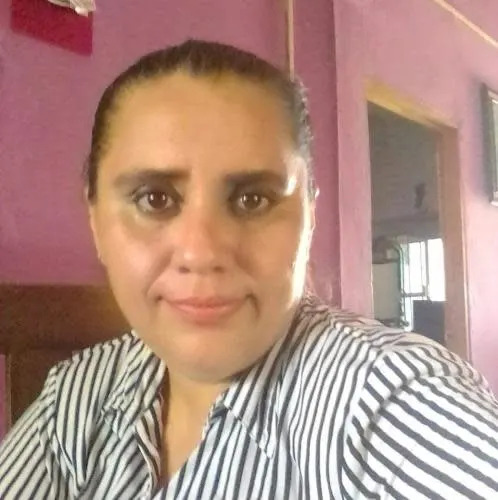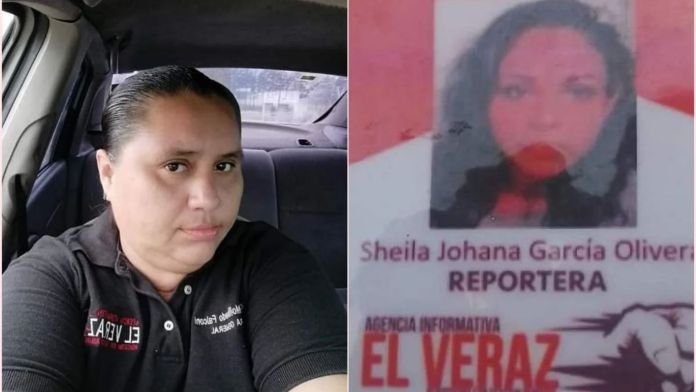The unrelenting slaughter of Mexican journalists has continued after two more newspeople were gunned down by unidentified assassins – taking the 2022 death toll to 11 in what is the deadliest country for media professionals outside a warzone.
Yesenia Mollinedo Falconi and Sheila Johana García Olivera were murdered in the town of Cosoleacaque, about 350 miles east of the capital Mexico City, around 3 pm on Monday.

According to reports, Mollinedo, the director of a weekly publication called El Veraz, and García, a reporter, were shot inside their Ford Ikon outside a roadside convenience store.
“They have despicably and cowardly murdered a fellow reporter,” one local journalist announced in a video dispatch from the crime scene, as rifle-toting security forces surrounded the area.
Mollinedo and García are only the latest in a succession of Mexican reporters to lose their lives this year in what is a growing scandal that the president, Andrés Manuel López Obrador, has been accused of failing to adequately address.
In fact, many critics believe López Obrador, a media-bashing populist known as Amlo, is fuelling the violence with his incessant public attacks on journalists who he has labeled ill-intentioned conservative “mercenaries” bent on undermining his nationalist administration.
Attacks on the press have surged 85% in the three years since Amlo took power in December 2018 with every single Mexican state witnessing such incidents for the first time in 2021.

Seven journalists were killed in the whole of last year, compared to 11 in the first five months of 2022.
“Every day [Amlo] urges society to discredit the journalistic profession – and clearly we are paying the price in blood,” said Sonia de Anda, a Tijuana-based journalist who recently confronted Mexico’s president over the killings.
Tijuana, which sits on the US border near San Diego, has suffered the most this year, with two prominent journalists murdered outside their homes there in January: the photojournalist Margarito Martínez Esquivel and the television reporter Lourdes Maldonado.
The government has blamed both killings on people linked to the Arellano-Félix crime cartel – but many are skeptical.
“Tijuana’s got a pretty long history of grabbing someone who may have had the gun in their hand, but not touching the person who was actually responsible,” Michael Lettieri, a San Diego-based researcher and human rights activist told the San Diego Union-Tribune this week.
Speaking earlier this year, Adela Navarro Bello, the director of the Tijuana weekly Zeta, said: “Right now the Mexican press is caught in the crossfire between the threats and bullets of narco-traffickers and organized crime and the threats and verbal attacks and attempts to morally annihilate us from the federal and state governments.”
“When a journalist is murdered, it’s not just the family that loses their loved one … society loses too,” added Navarro Bello, whose publication has not put a reporter’s name on an investigative story since 2006 for fear of them being shot dead. “When a journalist is murdered society becomes a little bit blinder and a little bit deafer.”
The attorney general’s office in Veracruz state, where Cosoleacaque is located, insisted Monday’s murders would not go unpunished. “All lines of inquiry will be pursued, including any connection to their journalistic activities,” it said on Twitter.
However, campaigners say there is impunity in 90% of such crimes and see little sign of change.

Griselda Triana, a journalist whose crime reporter husband, Javier Valdez Cárdenas, was assassinated five years ago, was among dozens of demonstrators who hit the streets of Mexico City on Monday afternoon to protest the tsunami of murders.
“It is so easy for them to kill a journalist,” Triana lamented, remembering how her family had been shattered by his notorious 2017 shooting in Culiacán state. “Sometimes they threaten them, sometimes the victim gets no warning at all and they just get rid of them. Justice either takes too long or never comes at all.”
“It’s a feeling of such helplessness,” said Pablo Pérez, a Mexican producer for Al Jazeera who was also at the demonstration. “Eleven [murders] is heartbreaking and the naturalness of knowing that before long there will be another killing is absurd.”
Jordi Lebrija, a Tijuana journalist who was friends with Margarito Martínez, noted how nearly all of the journalists murdered this year were, like him, killed outside their homes.
“It’s a message. Not even outside your house are you safe,” Lebrija said as he stood at the spot where Martínez had died. “We are looking at you. We know who you are. We know what you do. That’s the message for journalists.
Source: OEM




